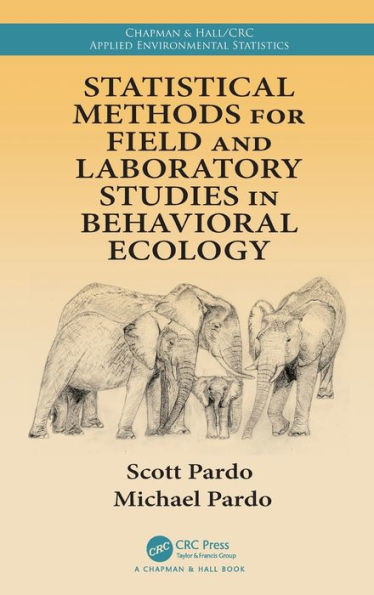Home
Practical Methods in Ecology / Edition 1
Loading Inventory...
Barnes and Noble
Practical Methods in Ecology / Edition 1
Current price: $78.95


Barnes and Noble
Practical Methods in Ecology / Edition 1
Current price: $78.95
Loading Inventory...
Size: OS
*Product Information may vary - to confirm product availability, pricing, and additional information please contact Barnes and Noble
There are few books available that provide a good introduction to the methods and techniques for ecological research. This book will be invaluable to lecturers teaching field courses and students undertaking project work in ecology.
Each chapter will focus on an ecological technique. It will have an introductory section that describes the ecological principles and theory. This will then be followed by example applications. These will focus on three most common habitats where teachers take students for fieldwork; the seashore, ponds and lakes, fields and woodland.
Gives specific worked examples from the main ecosystems used for undergraduate study - seashore, lakes/ponds, field and woodland.
Only introductory text specifically focused on field techniques.
Great 'how-to' guide that will show student exactly how to carry out each method.
Only text to emphasise the principles behind the techniques - taking a methods based approach rather than a taxonomic approach (eg chapters split into population measures, biodiversity measures, species richness measures rather than methods for invertebrates, methods for mammals, methods for birds etc).
Greater emphasis on the equipment involved - how to make it, where to buy it.
Good references to further reading and advanced techniques.
Each chapter will focus on an ecological technique. It will have an introductory section that describes the ecological principles and theory. This will then be followed by example applications. These will focus on three most common habitats where teachers take students for fieldwork; the seashore, ponds and lakes, fields and woodland.
Gives specific worked examples from the main ecosystems used for undergraduate study - seashore, lakes/ponds, field and woodland.
Only introductory text specifically focused on field techniques.
Great 'how-to' guide that will show student exactly how to carry out each method.
Only text to emphasise the principles behind the techniques - taking a methods based approach rather than a taxonomic approach (eg chapters split into population measures, biodiversity measures, species richness measures rather than methods for invertebrates, methods for mammals, methods for birds etc).
Greater emphasis on the equipment involved - how to make it, where to buy it.
Good references to further reading and advanced techniques.


















